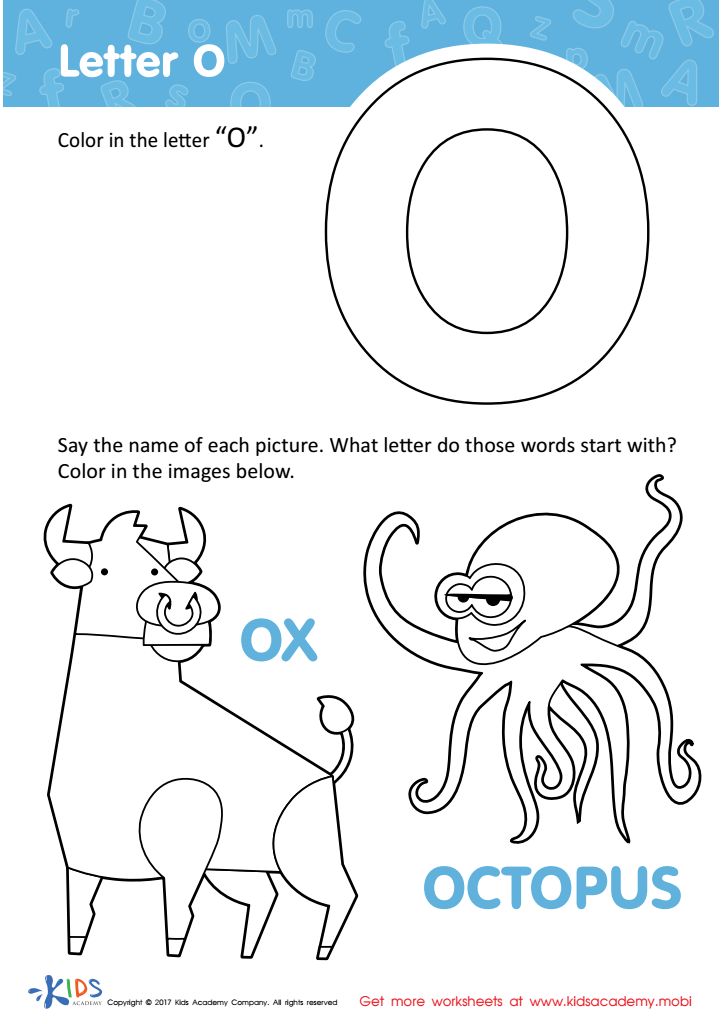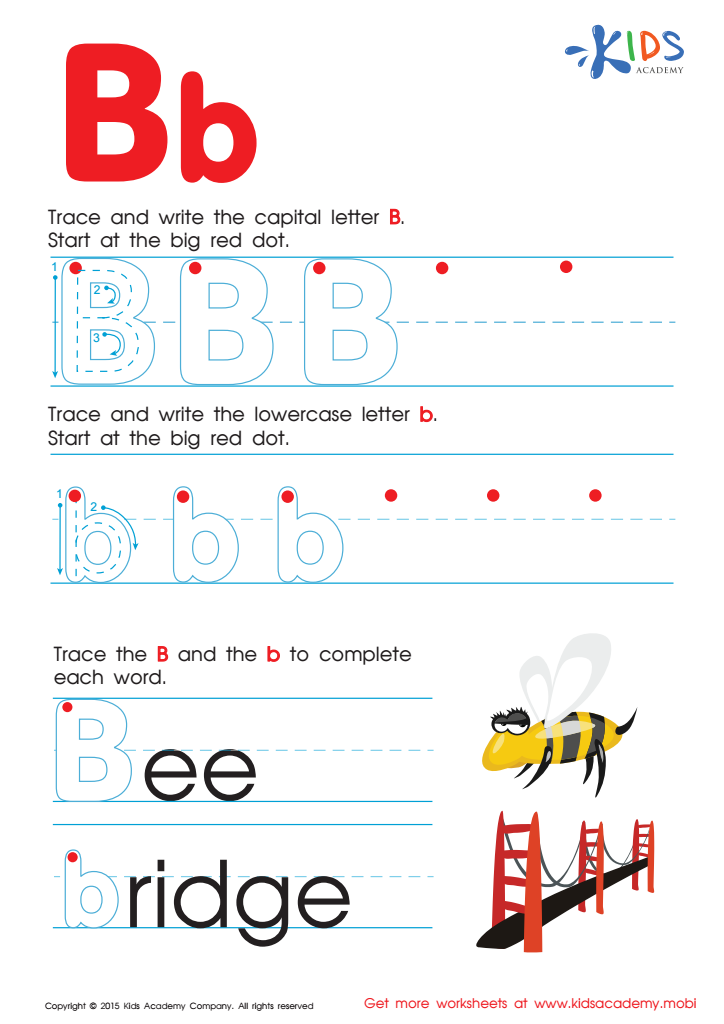Motor skills development Normal Letter Recognition Worksheets for 6-Year-Olds
3 filtered results
-
From - To
Discover our engaging Motor Skills Development Normal Letter Recognition Worksheets designed specifically for 6-year-olds! These worksheets not only support early literacy by promoting letter recognition but also enhance fine motor skills necessary for writing. Children will enjoy fun activities such as tracing, coloring, and matching letters, all while building confidence in their reading abilities. Our thoughtfully crafted worksheets cater to diverse learning styles, ensuring that each child can progress at their own pace. Perfect for home or classroom use, these resources are an invaluable tool for fostering a love of learning in young learners. Start supporting your child's education today!


Letter H Tracing Page


Letter O Coloring Sheet


Letter B Tracing Page
Motor skills development and letter recognition are crucial for 6-year-olds as they significantly influence a child's overall learning and growth. Fine motor skills involve the coordination of small muscles, particularly in the hands and fingers. Essential tasks such as holding a pencil, cutting with scissors, or manipulating small objects hinge on these skills. If children struggle in these areas, their ability to engage in classroom activities and perform writing tasks may be hindered, leading to frustration and decreased self-esteem.
On the other hand, normal letter recognition is foundational for developing reading and writing skills. Recognizing letters helps children connect sounds to symbols, fostering early literacy. Without solid letter recognition, children may find it difficult to read words, understand written instructions, or communicate effectively through writing in later grades.
Both motor skills and letter recognition pave the way for academic success, critical thinking, and social interactions. Consequently, parents and teachers should collaborate to create enriching environments that promote practice in these areas through fun activities like drawing, crafting, or educational games. By focusing on these developmental aspects, adults can enable children to gain confidence and develop a strong foundation for future learning.
 Assign to My Students
Assign to My Students





















